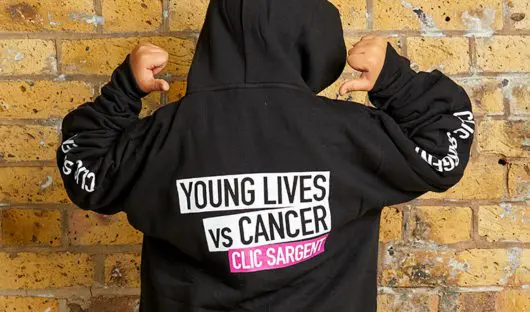Communicating with my child’s school
We know that going to school is a huge part of your child’s life. It provides structure and stability, as well as helping children develop crucial social, emotional and behavioural skills. That’s why it’s important that you and your child are able to communicate clearly with their school after diagnosis to make sure that their needs are being properly met.
Telling your school
As soon as your child has been diagnosed, it’s important to tell their school.
If your child is going through treatment, they’ll be spending time in hospital and will probably be attending hospital school. The hospital teachers may also help you keep in touch with your school, so it’s worth checking with them. You can read more about learning in hospital here.
It’s useful to set up an initial meeting with your school to discuss what will happen with your child’s education going forward. It’s helpful if this meeting includes:
- You and your child (if appropriate and if they feel comfortable)
- A member of staff at the school who deals with inclusion
- A member of staff who knows your child well, who could be their class teacher, form tutor or head of year
If your child is diagnosed with cancer, they are entitled to certain educational rights under the law, from their school and local authority. Find out more about your child’s educational rights, including how the school should make adjustments for your child.
Find your one point of contact at school, normally who deals with inclusion.
Just keep making time, we had to drive it all the way – it is hard work but it is harder when the communication channels are not open.
Keeping teachers informed
After the initial meeting, it’s important that you continue to let the school know how your child is doing, for example, if there any changes in their treatment. It may be useful to set up regular meetings.
It’s helpful to let the school know how much time your child will be spending in the hospital. The school teachers can then work with the hospital education department to make sure they cover the same work as the rest of the class.
You might also find it useful to ask if a member of your child’s medical team could act as a point of contact with the school for information and advice.
I stayed in contact with school via email.
Involving your child in decisions
If it’s appropriate, your child should be involved in decision making around what is communicated to the school, their teachers and other pupils. It’s important that they are able to voice what they feel comfortable being discussed with their classmates.
Communicating with other pupils
If you and your child are happy to, teachers may want to discuss their diagnosis and treatment with other pupils. It can be helpful for other children to understand more about cancer and be prepared for any physical changes due to treatment. Preparing others and helping them understand can also prevent your child from being singled out or teased.
Our award winning ‘Cancer and school life’ pack can help teachers communicate about cancer confidently to other pupils. Order it now from our publications library.
You can also speak to your Young Lives vs Cancer Social Worker for more information. They may also be able to help with practical concerns such as talking to your child’s school about how your child can continue learning or keep up with friendships.
Do you need more information and advice about education? Young Lives vs Cancer has partnered with Contact, the charity for families with disabled children, who can offer specialist advice on a range of issues including education and learning support.
Your Young Lives vs Cancer Social Worker will be able to give you more information about how to access their services, or you can find out more about how to get in touch with Contact here.
![]()
You might also like...
My child’s educational rights after diagnosis
What I do need to know about my child's rights when it comes to school and education?
Read more
Exams while your child is having treatment
Find out about special arrangements that may be available for your child if they're taking exams during treatment.
Read more
For children, from children
Children and teenagers share their experiences of living with cancer, and what advice they would give to others.
Read more
More information and support
Contact
Contact supports families whatever their child’s disability or medical condition, with the best possible guidance and information – from getting a diagnosis, to securing a suitable place at school.
Visit the websiteGet a Young Lives vs Cancer grant
It’s not right that young people and parents have to worry about money when they need to focus on treatment and all that comes with it. So Young Lives vs Cancer gives various grants, right from the moment of diagnosis, to help young people and families cope financially.
Find out more about getting a grantJoin our Facebook group for parents
Share your stories and experiences with other parents. Get advice or share tips to help others, and become part of a supportive community.
Join the groupAre you a cancer dad?
Many dads spend less time in the hospital and don't get the same network of support. Feeling like you have to 'hold the fort' can be isolating and difficult, so it's extra important you have someone to talk to about your challenges.
Join our Mind the Chaps Facebook group for dads